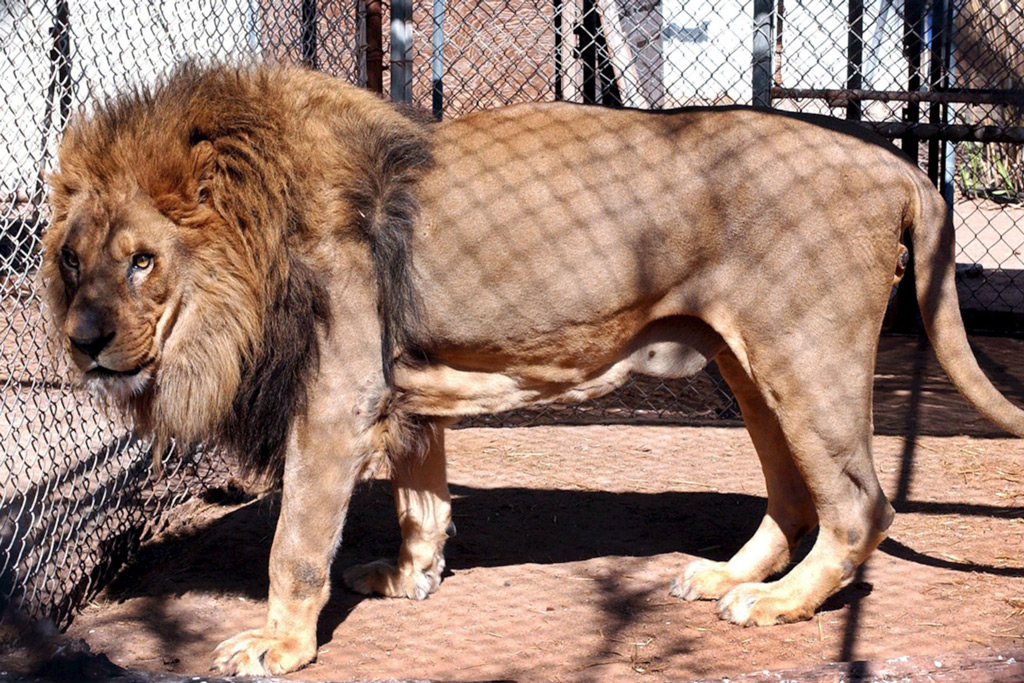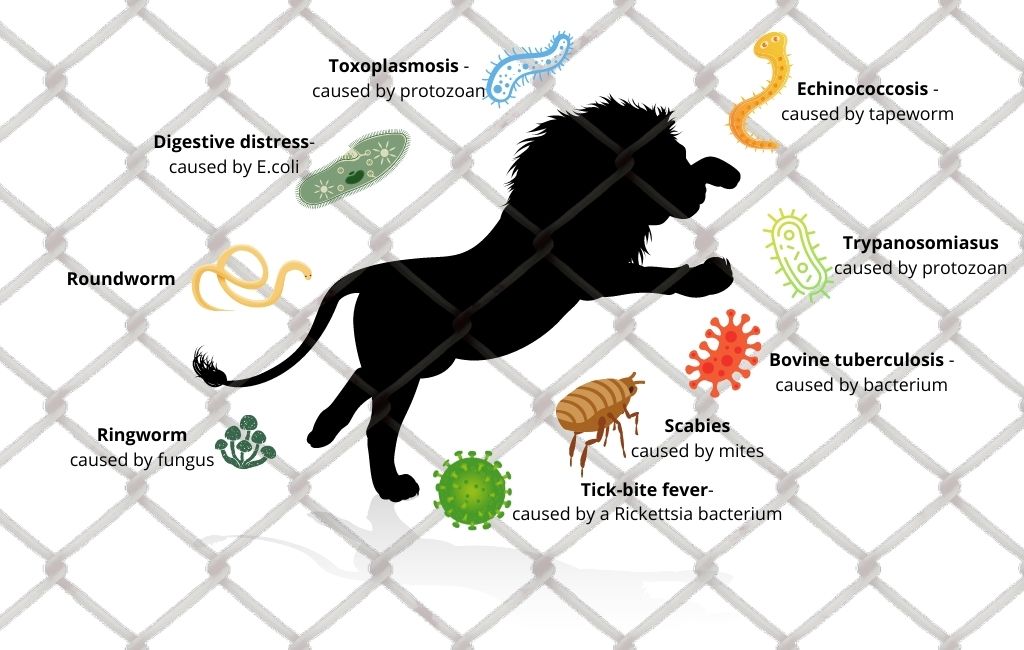
In the recent report provided by the High-Level Panel on the management of iconic wildlife species in South Africa, the majority of the panel recommended that the government of South Africa ban captive lion breeding. One of their reasons was the risk associated with zoonotic diseases. It is a risk that has been highlighted by several lobbying groups and individuals but is often lost beneath the layers of moral debate that tend to dominate. So what diseases are associated with lions, and how acute is the risk? A recent study analyses 148 different research papers to start providing answers to these questions.
A zoonotic disease is a disease caused by any pathogen – bacteria, viruses, prions, fungi and parasites – capable of transmitting from vertebrate mammals to humans. Outbreaks of zoonotic diseases such as ebola, foot-and-mouth, psittacosis, or tuberculosis are often associated with severe human illness and death, as well as heavy livestock losses. Any farming and commercial use of animals is associated with an increased risk of zoonotic transmission, which is why biosecurity is so stringently regulated in most countries.
Wild animals can also act as reservoirs of infectious disease, some of which may, as yet, be unknown to the scientific community. Commercial wildlife operations are typically conducted with high concentrations of animals, poor hygiene conditions, and close contact between animals. In wild animals without domesticated instincts, high stress levels caused by captive situations might lower immune response and increase the risk of disease spread. Even though there are now thousands of lions and other predators housed in captive situations throughout South Africa, this was the first attempt at compiling a list of pathogenic organisms associated with lions from recent scientific research.

The authors analysed 148 different scientific papers from the last ten years to collate a list of diseases that have been identified in lions. Sixty-three different pathogens were reported, most of which were parasites but also included viruses and fungi. The authors also list 83 clinical symptoms and diseases associated with the identified pathogens. Several were singled out as potential threats to human health:
- Echinococcosis – a disease caused by tapeworms that may often be present without symptoms for many years but may result in the formation of cysts in the brain, lungs and liver.
- Human African trypanosomiasis – lions are a potential carrier of African sleeping sickness, though the disease is not typically present in South Africa.
- Bovine tuberculosis – tuberculosis transmission at the wildlife-livestock-human interface is a growing concern and can have severe health and economic implications.
- A pathogenic strain of Escherichia coli – these bacteria are present in the intestines of most mammals, including humans, but pathogenic strains cause diarrhoea and digestive distress.
- Toxoplasma gondii – a protozoan parasite that causes toxoplasmosis (generally symptomless in healthy adults but can cause serious conditions in those with weakened immune systems). Some Toxoplasma species can cause severe inflammation to pulmonary, cardiac and nervous systems and have been linked to foetal death and abortion.
- Anaplasma phagocytophilum – one of the tick-borne Rickettsia bacteria, causing tick bite fever.
- Microsporum gypseum – a fungus that causes dermatomycosis (ringworm).
- Toxascaris leonina – a parasitic roundworm that has been known to invade human hosts.
- Mange – a contagious skin disease caused by parasitic mites and resulting in scabies in humans.

Of significant concern is the mutation and spread of viruses. Coronaviruses are one of the most common virus types in the world, and almost every human is infected with one or more during their lifetime. It is the more lethal strains of the virus (such as COVID-19) that are of concern. The feline coronavirus has not yet been known to spread from cats (lions or domestic cats) to people. However, the unsanitary conditions and proximity in lion farms increase the risk of these viruses mutating and making the species leap to humans. There are documented cases of COVID-19 in captive big cats, and farmers in the Netherlands contracted COVID-19 through close contact with infected mink. Pathogens could also transmit from farms to the surrounding wildlife.
In many instances, managing disease within captive lion populations is especially difficult because the lions appear asymptomatic for years or may act as carriers of disease. With little to no legal regulation, most captive lion farms have no biosecurity measures in place. This, in turn, will have implications for what happens to the lions currently in captivity.
The authors indicate that the list of identified pathogens is far from exhaustive but was intended as a baseline inventory of key pathogens associated with diseases in lions. They conclude that regardless of the moral debate surrounding the commercial breeding of lions, the industry poses a potential risk to other wildlife and public health.
The full text can be accessed here: African Lions and Zoonotic Disease: Implications for Commercial Lion Farms in South Africa, Green, J., et al., (2020), Animals
To comment on this story: Login (or sign up) to our app here - it's a troll-free safe place 🙂.![]()






